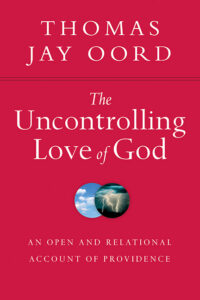Statistics & Free Will
In a number of books and articles, I’ve argued for the reality of creaturely freedom. Our freedom is always limited, however, by various forces, factors, actors, and agents in our bodies and outside. Despite these limitations, there are at least nine good reasons to think we have genuine freedom.
Not everyone affirms the reality of free will. Not everyone affirms it in what they say or write, that is. We all assume the reality of freedom in our actions. That’s an experiential nonnegotiable. Those who deny freedom verbally but act freely are experiential hypocrites.
Freedom Skeptics
Skeptics of freedom express various reasons for their doubt. Some deny free will based upon observations of behavioral patterns and regularities among large groups of animals. They claim that predictable regularities are irreconcilable with genuine freedom. Regularity would only occur if creatures are entirely determined, they say, or operate solely by instinct.
The skeptic’s denial of freedom to animals can also be used to deny freedom to humans. After all, the behavior of humans, in large numbers, is also highly predictable. A statistical law may tell us some thing about a particular human population and even produce highly probable predictions.
Is Marriage Freely Chosen?
To illustrate how skeptics discount freedom by observing the regularities of large numbers, take as an example the decision some people make to marry. In most cases, numerous factors influence the people making this free choice. Relationships, attraction, biology, chemicals, social pressures, and more play a role.
Let us suppose that researchers tallied marriages each year in the total human population. Suppose that year after year for three decades the marriage rate hovered around 50 percent of eligible candidates.
Skeptics of free will may observe this regularity and think marriage is inevitable for half the people on the planet. Individuals in this percent, skeptics may say, are not free to remain single. Marriage for them is predestined or fated.
Statistics Describe Large Scale Freedom
But this way of thinking puts the regularity cart before the freewill horse. Unlike the skeptics, freewill advocates believe statistical averages tell us what people freely do in relation to their choices. Averages do not force particular individuals to choose marriage.
Instead, statistical averages describe what humans freely choose in their decisions. The predictable percentage of those who marry each year can be reconciled with the idea that each freely chooses to wed.
The chooser makes decisions freely, although constraints limit his or her options when deciding. For instance, the one choosing to marry may feel marriage is the most compelling option among others. Other factors also influence the person’s decision. His or her freedom is limited but real because that person could remain single.
Issues of Life
In my book, The Uncontrolling Love of God, I explore the general categories of chance, regularity, freedom, and agency. I argue that each is real, and not even God controls creatures.
These issues are crucial not only for making sense of divine providence but for making sense of life in general. I recommend the book to those who want to go deeper into these vital subjects.


Comments